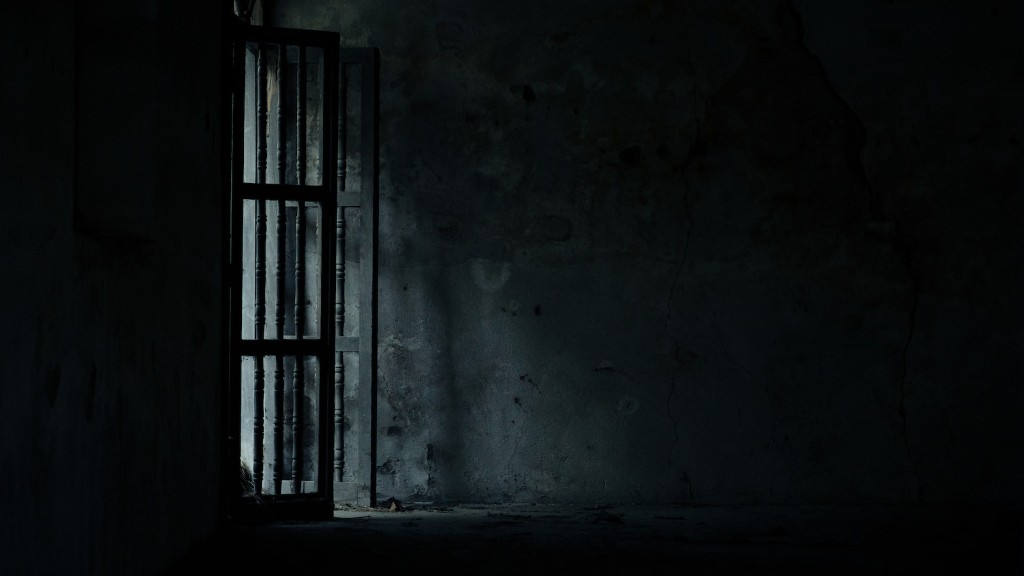Horror movies are one of the most popular movie genres and can have a significant impact on viewers. While some people enjoy the suspense and fear that these movies generate, others may find them too disturbing or anxiety-provoking. For some, horror movies can be a form of escapism, providing an opportunity to vicariously experience adrenaline-pumping thrills. For others, horror movies may serve as a reminder of real-life fears or traumas.
There is no one answer to this question because people can have very different reactions to horror movies. Some people might find them thrilling and exciting, while others might find them disturbing and upsetting. Some people might even experience a mix of both emotions. Ultimately, it depends on the person and their own personal preferences.
What does horror movies do to your brain?
The results of multiple studies have shown that watching scary scenes can increase the level of adrenaline in the brain, releasing neurotransmitters that can improve reaction time, alertness, and concentration. There are a plethora of other advantages that can be witnessed as a result of a single movie session, making it a great way to get the most out of your brain.
Horror movies can have a desensitization effect on the brain, which can lead to physical reactions such as sweaty palms, tense muscles, a drop in skin temperature, a spike in blood pressure and an increased heart rate. Although horror movies do not directly impact the brain in a positive way, they can help to desensitize people to fear and violence, which can be beneficial in certain situations.
How do horror movies make you feel
Horror entertainment can be a thrilling experience for many people. The fear and suspense that comes with it can be a rush of adrenaline and endorphins. It can also be a way to process surroundings and learn about personal safety. For these reasons, horror fans often enjoy watching scary movies.
It is important to remember that exposure to media, television, movies, or pictures cannot cause PTSD. However, for people who have already experienced a traumatic event, these things can act as a trigger for the symptoms of PTSD. Symptoms of PTSD include: Re-experiencing the trauma through intrusive distressing recollections of the event, including flashbacks and nightmares. Avoidance of anything that reminds the person of the trauma. Negative changes in thought and mood, including feeling detached from others, loss of interest in activities, feeling hopeless, and experiencing low self-esteem. Arousal and reactivity, including being easily startled, feeling on edge, having difficulty sleeping, and experiencing angry outbursts.
Do horror movies affect mental health?
It is important to be aware of the potential risks of watching horrific images, as they can trigger unwanted thoughts and feelings, and even increase our sensitivity to startle-eliciting stimuli. If you are prone to anxiety or panic, it is best to avoid watching such images, as they may only worsen your symptoms.
Horror is one of the most popular genres because it is exciting and adrenaline-inducing. The build-up of suspense and the release of fear can be greater than any other genre. It also responds more to human nature than anything else. People are naturally curious and attracted to things that are forbidden or considered dangerous. Horror allows us to explore the dark side of human nature in a safe and controlled environment.
What are the 3 rules to survive a horror movie?
When watching a horror movie, there are a few basic rules to follow if you want to survive. First, never trust your love interest. More often than not, they end up being the killer. Second, the killer always has something to do with the past. He or she may be seeking revenge, or simply have a dark history that is coming back to haunt them. Lastly, the first victim always has a circle of friends that the killer is a part of. This allows the killer to easily target their next victim. If you remember these simple rules, you should be able to make it through any horror movie unscathed.
This is an interesting study and it does make sense that if we are able to control the source of our fear, it would help us to feel more in control overall. This could be a helpful tool for people who struggle with anxiety.
How do you cleanse after watching a scary movie
There are a lot of great ways to wind down after a long day or a scary movie. Taking a warm bath or shower, reading a book, listening to calming music, and practicing some light yoga are all great options. If you want to distract your mind and forget the scary movie, try watching a funny movie or TV show. Using laughter to help distract your mind can be a great way to forget about the scary movie and relax.
Some research indicates that people with a higher sensation-seeking trait tend to seek out and enjoy horror-related experiences more. Those with a lower sensation-seeking trait may find those experiences unpleasant and avoid them.
What personality type likes horror movies?
The study found that those who prefer horror movies tend to be low in neuroticism and high in sensation seeking. This indicates that they are less likely to be affected by the fear and violence in these movies and more likely to enjoy the suspense and excitement.
Horror is often thought of as a negative force, something that brings out the worst in people. But as this quote suggests, horror can also be a positive force, one that can bring people together and help them to see the best in each other. The course described here sounds like it would be a great way for people to learn how to deal with horror in a constructive way.
What is the most traumatizing horror movie
What makes a horror movie truly disturbing and disgusting? Is it the gore? The violence? The suspense? For some, it might be all of the above. But for others, it might be something as simple as the feeling of being absolutely helpless.
No matter what it is that makes a horror movie truly disturbing and disgusting, there are definitely some that fit the bill. Here are 32 of the most disturbing and disgusting horror movies that you’ll never be able to unsee.
1. Saw (2004)
2. The Thing (1982)
3. House of 1000 Corpses (2003)
4. Raw (2017)
5. The Human Centipede II (Full Sequence) (2011)
6. A Serbian Film (2010)
7. Antichrist (2009)
8.august Underground’s Mordum (2003)
9. Grabbers (2012)
10. The Last House on the Left (1972)
11. The Texas Chainsaw Massacre (1974)
12. The Collection (2012)
13. The Blair Witch Project (1999)
14. The Ring (2002)
15. Let the Right
Watching scary movies can have some interesting effects on our bodies. For one, our brains release adrenaline which prepares us for stressful situations. This is because our sympathetic nervous system responds to the threat and kicks us into the “fight or flight” response. This can lead to some pretty intense physical reactions, including increased heart rate, increased blood pressure, and even increased blood sugar levels. So if you’re looking for a good way to get your heart pumping, watching a scary movie might be just the thing!
Can scary movies cause depression?
Although horror movies may positively impact mental health in some cases, it’s vital to be cautious while using them as a coping tool. They may cause more harm than good: Horror movies can negatively affect sensitive people and people with mental health problems, increasing stress, anxiety, panic, and depression.
Personality traits and cognitive/affective traits have been implicated in horror preference and/or enjoyment of horror. Some of these traits include sensation seeking, empathy, theory of mind, need for affect, the dark tetrad, and personality. Other individual differences that may affect horror preference and/or enjoyment include age and sex.
Conclusion
Horror movies affect you by making you scared.
While different people may react differently to horror movies, it is generally accepted that they can have a negative effect on viewers. Horror movies are designed to scare and startle viewers, and this can lead to sleep problems, anxiety, and even nightmares. If you are someone who is easily affected by scary movies, it is probably best to avoid them altogether.




